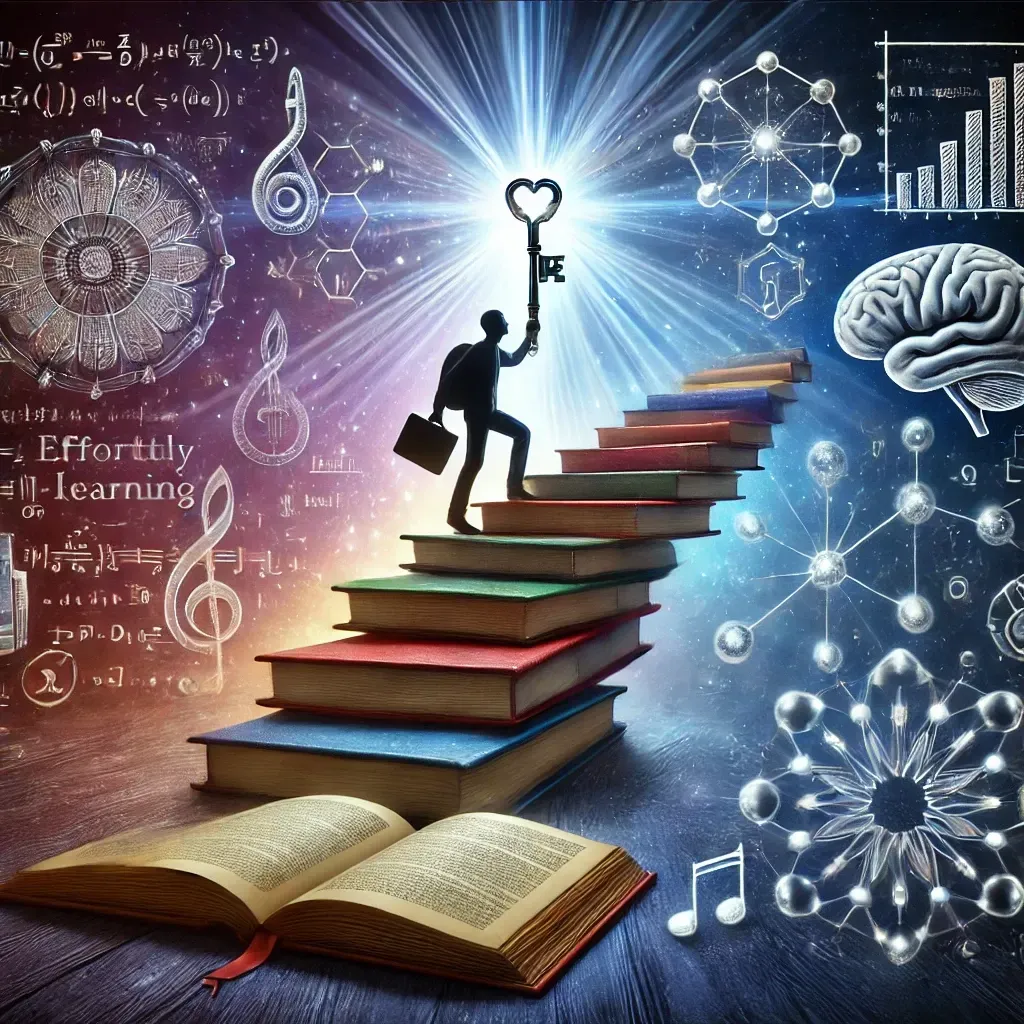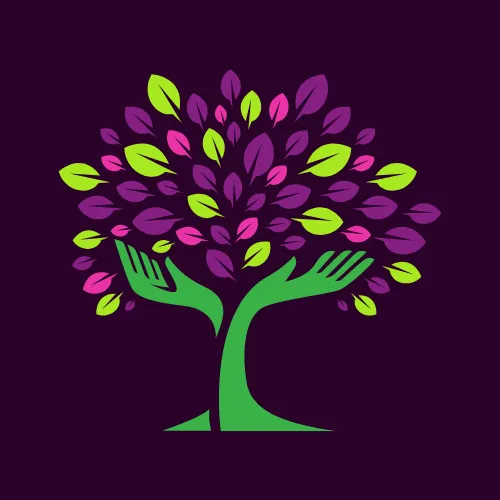We use cookies to improve your experience on our site. By using our site, you consent to the use of cookies. Rejecting cookies will prevent non-essential cookies from loading.
Welcome To The Growth Gazette Blog!
This blog is designed especially for young adults seeking to transform past adversities into opportunities for self-improvement, clarity, growth, and personal transformation.
If you are feeling directionless, unseen, hopeless, lost, confused, isolated, alone, or unfulfilled, you've come to the right place.
Through the lens of my personal experiences—traveling to 14 countries, pursuing a career in acting, growing up with a single mother and drug addicted and alcoholic father, and overcoming the loss of a close friend—I understand the importance of facing fears and seeking personal growth. With the guidance of a life coach, I found my way to a more fulfilling, purpose-driven life.
I grew up with ADD and was labeled to have a learning disability. Always struggling with school and barely passing any of my classes. I got arrested multiple times when I was a teenager and got expelled from my school district.
But, I overcame all that. One day while in a drunk tank after being arrested for the 6th time at the age of 16, I said enough is enough.
I began to change the story that I was telling myself, diving deep into non-fiction books, taking courses, getting coached, and changing my belief system and mindset.
Now, I am here to help you do the same. At The Growth Gazette, you'll find:
Life Coaching Insights: Practical tips and strategies to empower you to take control of your life.
Overcoming Challenges: Proven methods to help you face and conquer your fears and obstacles.
Personal Growth Techniques: Tools to cultivate a growth mindset and overcome limiting beliefs and negative thoughts.
Empowering Articles: Stories and advice to inspire and motivate you on your personal development journey.
Join our community and unlock your potential. Embrace the journey of self-discovery and transformation. Let's work together to set clear goals, find your true purpose, and create a positive impact in your life and the world.
Welcome aboard! Let’s grow together.

The Hidden Truth About Learning: Why It's Suppose to Be Hard
"Live as if you were to die tomorrow. Learn as if you were to live forever." — Mahatma Gandhi
When most people think of learning, they often imagine it should come naturally. There’s this idea floating around that learning is easy or that it’s something you’re either good at or not. But here’s the truth: learning is supposed to be hard. It’s effortful, it takes work, and that’s exactly why it works.
Growing up for me, learning was extremely difficult. I was diagnosed with ADD and labeled "learning disabled." A C+ was a good day! It got so bad at a point that I started skipping skill and eventually due to bad decisions, got expelled from my school district.
I remember feeling worthless and broken because I wasn't picking things up as fast as others, or the feelings of embarrassment that would wash over me when I was trying so desperately hard to grasp a concept or lesson that other people seemed to be barely paying attention to, yet were absorbing it like a sponge.
It wasn't until my early to mid-twenties that I began to overcome and attack those limiting beliefs and reframe my mindset so that not only did I fight to learn, but I loved it. Now? I am obsessed with learning.
Learning the Hard Way: Why Struggle is Necessary
If you have ever felt frustrated or overwhelmed with having to learn a new subject, skill, not learning a subject fast enough, just know that you aren't alone. I was there too, and so are countless others. Our school systems and society's unfortunately doesn't teach us how to learn.
It's easy to get lost in the idea that learning should be instant. But in reality, it's the moments when you feel stuck or frustrated that you're actually growing the most.
Many influencers out there claim that learning can be effortless with the right tools or techniques. But if learning were easy, we wouldn’t actually retain the information. Learning requires active engagement, and that engagement is where growth happens. As the book Make It Stick explains, true learning happens when you have to work for it. When you actively retrieve information, your brain strengthens the pathways needed to retain that knowledge.
In other words, how learning happens is through difficulty, not ease. This is especially true when it comes to skills that require practice and repetition, like learning a musical instrument.
In an article by University School of Milwaukee According to Grant, “the best way to accelerate growth is to embrace, seek, and amplify discomfort.” Most of us believe that we should get comfortable with new material, like new foreign language words, before practicing them in conversation. Wrong. Research consistently confirms that we learn when we are uncomfortable and making mistakes; comfort only grows through continued practice. Grant warns that “if we wait until we feel ready to take on a new challenge, we might never pursue it.”
Learning Guitar: A Perfect Example of Effortful Learning

Let’s take learning guitar as an example. So many people pick up a guitar thinking, “I’ll just watch a few tutorials or download an app, and I’ll be playing like a pro in no time.” But ask any experienced guitarist, and they’ll tell you it’s anything but easy.
Learning guitar requires effortful practice. It’s not enough to simply watch someone else play—you have to struggle with your own hands, build muscle memory, and master the awkward feeling of new chords. The grind of practice is what makes you better. And that’s a perfect example of why learning is supposed to be hard. If you don’t put in the effort, you won’t get results.
For myself, I think back to the days that I was training in Judo and Brazilian Jujitsu. So many people (mostly men unfortunately,) walk into the dojo and step onto the mat fresh from the street with a swagger that says "they have no idea what they're in for.) Only to be tapped out or slammed into the mat with that suffocating feeling where you're can't breath (yup, I was one of them!).
Learning to be able to perform Judo and BJJ required not just tons of practice time, but an incredible amount of effort, resilience, and discomfort. I had to get tapped out, winded, slammed so many times until I began to either defend against the move, or counter it with my own move.
If BJJ and Judo were to come easy to me...there's no way I would have grown and built the skills that I have today.

The key takeaway? Learning the hard way leads to better mastery and understanding. There’s no shortcut to genuine skill development.
The resilience I developed on the mat didn't just stay there. It carried into how I approached business, relationships, and life itself. Everytime I faced discomfort, I remind myself: this is where growth happens.
What skill have you been working hard to master? Have you noticed how effort changes the way you learn?
The Myth of Learning Styles
You’ve probably heard people say, “I’m a visual learner” or “I learn best by listening.” But research shows that this idea of learning styles is more myth than reality. In fact, learning styles as we commonly know them don’t hold up to scientific scrutiny.
As mentioned in the article from Michigan’s Roundup on Research, most studies on learning styles use methodologies that apply multiple styles to all learners. This means there’s no way to isolate a single learning style as the best teaching method. Adam Grant, a renowned psychologist, also emphasizes this, stating that the concept of learning styles is more of a preference, not a scientifically proven fact.
What matters most is using a variety of learning strategies to reinforce what you’re learning. Whether you prefer listening, reading, or hands-on practice, real learning happens when you stretch yourself beyond your comfort zone.
Different learning styles could be more practical for different situations also. For example, I listen to non-fiction audiobook while I drive at my part time pizza delivery job. Imagine if I was reading a physical book? Good luck...seriously though. Communication might be better suited for auditory, where framing is most likely best suited for visual.
Make It Stick: How Learning Works
In the book Make It Stick, the authors explain that learning isn’t about passive absorption of information. True learning happens when you engage actively with the material, struggle to recall it, and apply it in different contexts.
One of the most important concepts in the book is retrieval practice—the process of recalling information after a delay. This effort strengthens your memory and solidifies learning, making the knowledge stick. The more effortful the retrieval, the stronger the learning.
This is why simply re-reading notes or passively reviewing information doesn’t work as well as testing yourself or teaching others. The book provides a deep dive into how learning and development truly work and offers practical techniques to make learning more effective.
"The more that you read, the more things you will know. The more that you learn, the more places you'll go." — Dr. Seuss
I absolutely love this book. Not only because it gives you easy to understand concepts and tools to use, but it flicked the switch for me when it taught me about how retrieval is so vital to how well we learn, and our mental strength.
I learned that there is a difference between retrieval and remembering, and how just like exercising and gaining strength in our muscles, we can do the same training and get the same growth with retrieving information
Learning Objectives and Strategies
When approaching learning, it’s important to have clear learning objectives. These objectives help you stay focused on what you want to achieve. Here are some questions you can ask yourself:
- What do I want to understand better by the end of this process?
- How will I measure my progress?
- What strategies will I use to reinforce what I’ve learned?
- How can I apply what I learned?
- How can I connect this new information to something I already know?
Speaking of strategies, here are seven effective learning strategies to help you on your journey:
1. Spaced Repetition: Revisit what you’ve learned over increasing intervals of time to help retain information.
2. Active Recall: Test yourself on the material instead of just re-reading it.
3. Teach Someone Else: Teaching forces you to simplify and fully understand the subject.
4. Interleaving: Mix up topics during study sessions instead of focusing on just one.
5. Reflection: Spend time thinking about what you’ve learned and how it connects to other concepts.
6. Practical Application: Apply what you’ve learned in real-world scenarios or projects.
These strategies align with the science of how learning works, helping you retain and apply knowledge more effectively.
"Education is not the learning of facts, but the training of the mind to think." — Albert Einstein
Start today by picking one of these strategies--whether it's spaced repition or active recall--and apply it to something you're learning.

Knowledge Isn't Power, It's Potential Power
You've likely heard the phrase, "Knowledge is power." But here's the real deal: Knowledge alone isn't power--it's only potential power. Power comes from applying what you've learned. Ever day, I try to take what I've learned and put it into practice and see if it either works or doesn't, because knowledge is only as useful as what you do with it.
Conclusion: Embrace the Struggle of Learning
Learning isn’t meant to be easy. It’s hard, it’s effortful, and that’s exactly what makes it so valuable. Whether you’re tackling a new instrument like guitar or trying to master a complex topic, remember that the struggle is part of the process. Embrace it, keep testing yourself, and stay curious.
Every day, I push myself to grow and become more than I was yesterday. Even if that is only by 1% each day or one small step. Whether it's about mindset, business, or life itself. It's not always easy, that's for sure, but it's the constant pursuit of growth that has brought me the most satisfaction and fulfillment.
Overcoming my limiting beliefs about learning wasn't just about mastering skills--it was about proving to myself that I was capable of growth, of change, and of creating the life I wanted. That's why I'm passionate about helping others learn how to learn and why I wrote this post. Learning gave me my life back.
Regardless of your reasons, my hope is that you apply these strategies, and no longer give up at the first sign of discomfort and challenge. Because when you are facing a challenge or discomfort, it's usually in my experience a calling for you to become something more.
What's the last thing you pushed yourself to learn, even when you felt uncomfortable? How did it change you?
Remember: the challenge you face today is shaping the person you'll be tomorrow.
If you're ready to push yourself and learn in ways that create lasting growth, sign up for my newsletter for weekly insights on personal development or grab one of the free resources at www.sagemodecoaching.com/resources

Eddy Green
My name is Eddy. I am the adult son of a single mother who overcame an emotionally abusive relationship with her drug addict and alcoholic husband. I have overcame my own hardships, having been arrested multiple times up until I was 16 when I was expelled from my school district and almost thrown in jail. Since then I have turned my life around, overcame more hardships, and lived my life focused on growth and making an impact in the world.
Before You Go, Check Out My Newsletter!
Stay Up To Date With Actionable Tips & Advice!
- Afghanistan
- Albania
- Algeria
- American Samoa
- Andorra
- Angola
- Anguilla
- Antarctica
- Antigua and Barbuda
- Argentina
- Armenia
- Aruba
- Australia
- Austria
- Azerbaijan
- Bahamas
- Bahrain
- Bangladesh
- Barbados
- Belarus
- Belgium
- Belize
- Benin
- Bermuda
- Bhutan
- Bolivia
- Bosnia and Herzegovina
- Botswana
- Bouvet Island
- Brazil
- British Indian Ocean Territory
- Brunei Darussalam
- Bulgaria
- Burkina Faso
- Burundi
- Cambodia
- Cameroon
- Canada
- Cape Verde
- Cayman Islands
- Central African Republic
- Chad
- Chile
- China
- Christmas Island
- Cocos (Keeling) Islands
- Colombia
- Comoros
- Congo
- Congo, The Democratic Republic of the
- Cook Islands
- Costa Rica
- Cote D"Ivoire
- Croatia
- Cuba
- Cyprus
- Czech Republic
- Denmark
- Djibouti
- Dominica
- Dominican Republic
- Ecuador
- Egypt
- El Salvador
- Equatorial Guinea
- Eritrea
- Estonia
- Ethiopia
- Falkland Islands (Malvinas)
- Faroe Islands
- Fiji
- Finland
- France
- French Guiana
- French Polynesia
- French Southern Territories
- Gabon
- Gambia
- Georgia
- Germany
- Ghana
- Gibraltar
- Greece
- Greenland
- Grenada
- Guadeloupe
- Guam
- Guatemala
- Guernsey
- Guinea
- Guinea-Bissau
- Guyana
- Haiti
- Heard Island and McDonald Islands
- Holy See (Vatican City State)
- Honduras
- Hong Kong
- Hungary
- Iceland
- India
- Indonesia
- Iran, Islamic Republic Of
- Iraq
- Ireland
- Isle of Man
- Israel
- Italy
- Jamaica
- Japan
- Jersey
- Jordan
- Kazakhstan
- Kenya
- Kiribati
- Korea People's Democratic Republic
- Republic of Korea
- Kuwait
- Kyrgyzstan
- Land Islands
- Lao People's Democratic Republic
- Latvia
- Lebanon
- Lesotho
- Liberia
- Libyan Arab Jamahiriya
- Liechtenstein
- Lithuania
- Luxembourg
- Macao
- North Macedonia
- Madagascar
- Malawi
- Malaysia
- Maldives
- Mali
- Malta
- Marshall Islands
- Martinique
- Mauritania
- Mauritius
- Mayotte
- Mexico
- Federated States of Micronesia
- Moldova, Republic of
- Monaco
- Mongolia
- Montenegro
- Montserrat
- Morocco
- Mozambique
- Myanmar
- Namibia
- Nauru
- Nepal
- Netherlands
- New Caledonia
- New Zealand
- Nicaragua
- Niger
- Nigeria
- Niue
- Norfolk Island
- Northern Mariana Islands
- Norway
- Oman
- Pakistan
- Palau
- Palestinian Territory, Occupied
- Panama
- Papua New Guinea
- Paraguay
- Peru
- Philippines
- Pitcairn
- Poland
- Portugal
- Puerto Rico
- Qatar
- Reunion
- Romania
- Russian Federation
- Rwanda
- Saint Helena
- Saint Kitts and Nevis
- Saint Lucia
- Saint Pierre and Miquelon
- Saint Vincent and the Grenadines
- Samoa
- San Marino
- Sao Tome and Principe
- Saudi Arabia
- Senegal
- Serbia
- Seychelles
- Sierra Leone
- Singapore
- Slovakia
- Slovenia
- Solomon Islands
- Somalia
- South Africa
- South Georgia and the South Sandwich Islands
- Spain
- Sri Lanka
- Sudan
- Suriname
- Svalbard and Jan Mayen
- Eswatini
- Sweden
- Switzerland
- Syrian Arab Republic
- Taiwan
- Tajikistan
- Tanzania, United Republic of
- Thailand
- Timor-Leste
- Togo
- Tokelau
- Tonga
- Trinidad and Tobago
- Tunisia
- Turkey
- Turkmenistan
- Turks and Caicos Islands
- Tuvalu
- Uganda
- UK
- Ukraine
- United Arab Emirates
- United States
- United States Minor Outlying Islands
- Uruguay
- Uzbekistan
- Vanuatu
- Venezuela
- Vietnam
- Virgin Islands, British
- Virgin Islands, U.S.
- Wallis and Futuna
- Western Sahara
- Yemen
- Zambia
- Zimbabwe
- No elements found. Consider changing the search query.
- List is empty.
